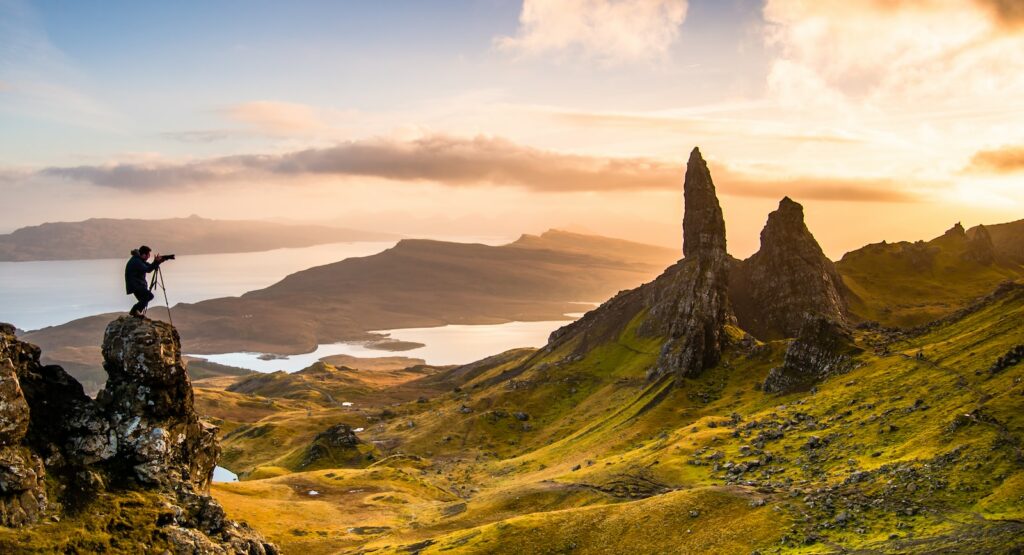
In the hunt for knowledge, man has lost its relation to the surroundings. Our relation to other people, nature or surroundings is possible because we are a sentient being. Thru our perception are we able to be open and receptive for the new, foreign and sometimes scary. We can chose to look at our nature 1) thru the perspective of man – and then we reduce it to just a surrounding , or 2) thru the perspective of nature – and then we make nature our origin (Melin, 2008).
The western world is influenced by Kants view of knowledge and the way to relate to reality (Särdquist, 2010). He is influenced by both rationalism and empirism. That means knowledge is based on empiri and reason, and thereby reject our important ability to sense. Left is just our observation and a distance to our selves and the world (nature, people, etc).
The consequence is that the norm of knowledge is that we premieres/honors a knowledge that separates us as human beings from our world and our selves. “More and better” (knowledge, products) have replaces “Values and prosperity” (Gorz, 2010).
In this perspective – the need for education to focus on openness, social integration and democracy is crucial. Philosophy is “a friend of wisdom” (greak) and is a way of study elemental questions. So why openness in education is important is not just about techniques or formality, it is about our existence and how we view us as human beings – are we machines who just process information or spiritual beings who seek for wisdom?
Where is the Life we have lost in living?
Where is the wisdom we have lost in knowledge?
Where is the knowledge we have lost in information?T.S Eliot (from The Rock, 1934)
In relation to ONL… I think we should focus on why education need to be open and inclusive and what that means to how we teach and design learning opportunities. It invites us to think and work together and share with others to be a part of a way of viewing and living Life – and what the purposes of education really is or could be. But what are the values behind this perspective on education? I agree with Weller (2014) that all people involved in education must adress what openness is and to be a part of the discussion, to prevent others decide it on our behalf. He also suggest that openness is such “a part of everyday life that is seem unworthy of comment” (p. 2). However… lots of water have flowed under the bridge since 2014. It is not about openness per se, but on why, what and how to share, participate and focus on values – such as the way we view us as human beings, democracy, co-creating and how to be a part of shaping and creating future possibilities – opportunities – and the realisation of them – not only for my self, but for others and for the community as a whole.
We should dare to invite the nature in again to our life and not just observe it and think we are the masters of the world, but its servants. What will that do to our view on learning and what kind of knowledge that is important now and in the future?

References
Gorz, A. (2010). The immaterial: knowledge, value and capital. London: Seagull.
Melin, A. (2008). K.E. Løgstrups kosmofenomenologi som en utgångspunkt för kristen miljöpteknik. Svensk Teologisk Kvartalskrift, 84(2008), 157-166.
Särdquist, E. (2010). Kunskapens yttersta kant: Gud och det givna i K.E. Løgstrups Metafysik. Skellefteå: Artos & Norma Bokförlag.
Weller, M. (2014). Battle for Open: How openness won and why it doesn’t feel like victory. London: Ubiquity Press.